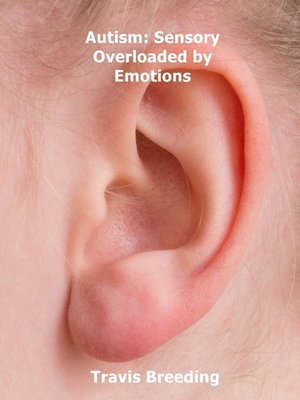
Sign up to save your library
With an OverDrive account, you can save your favorite libraries for at-a-glance information about availability. Find out more about OverDrive accounts.
Find this title in Libby, the library reading app by OverDrive.



Search for a digital library with this title
Title found at these libraries:
| Library Name | Distance |
|---|---|
| Loading... |
Have you ever felt overwhelmed by a sensual experience? Imagine magnifying that times 100. That is reality for many on the autism spectrum. This part of the presentation talks about how people with autism balance sensory input issues with socializing and following unwritten social rules in the real world. The presenter examines how people with autism have physical and emotional sensory experiences throughout their life.
Travis explains how physical sensations interfere with his ability to process social situations. He wonders if autism is not more of a sensory disorder than it is a social disorder. Is it possible that sensory experiences interfere with the ability to conceptualize and interpret social situations? You will learn the presenter's opinion on this subject as well as begin to learn how he balances sensory input issues with following the unwritten social rules of the world.
Travis explains how he feels overwhelmed sensory wise by other people's emotions. He feels other people's emotions sometimes more than his own. This can cause him to over react in responding to the emotions of his friends. Sometimes Travis' response to comfort someone is over the top to them because he is experiencing their emotion more magnified or dramatic than they are.
Emotions are all about context. Emotions are also a spectrum just like autism. There can be high functioning and low functioning emotions. It is important to understand the context of each emotion another person has in order to match the context of your emotional response and then match that context with your social response. Travis tells how he tries to learn to match context functioning levels of his friend's emotions with his in this informative presentation.
If someone with autism seems socially awkward it may be that they are having a sensory input experience that is preventing them from being proper socially. Often the sensory overload shuts down the social part of the brain preventing people with autism from accessing skills that they might have. The trick is to learn how to eliminate sensory barriers that prevent you from being successful in social relationships. This presentation is the presenter's experience with experiencing and relating to other people's emotions as someone on the autism spectrum.







